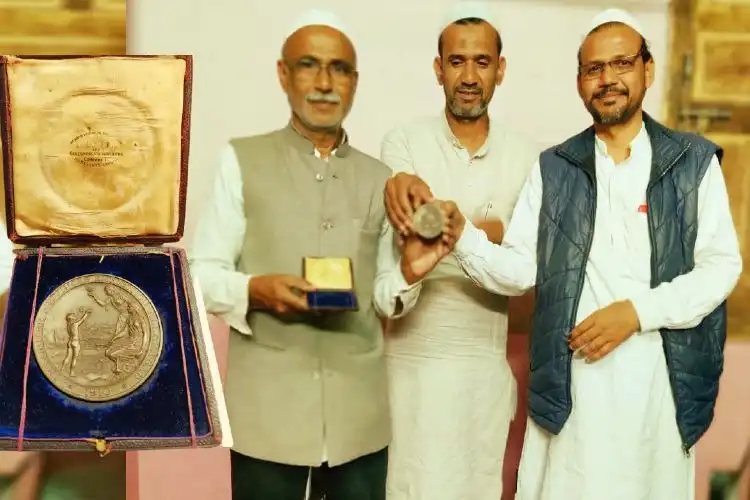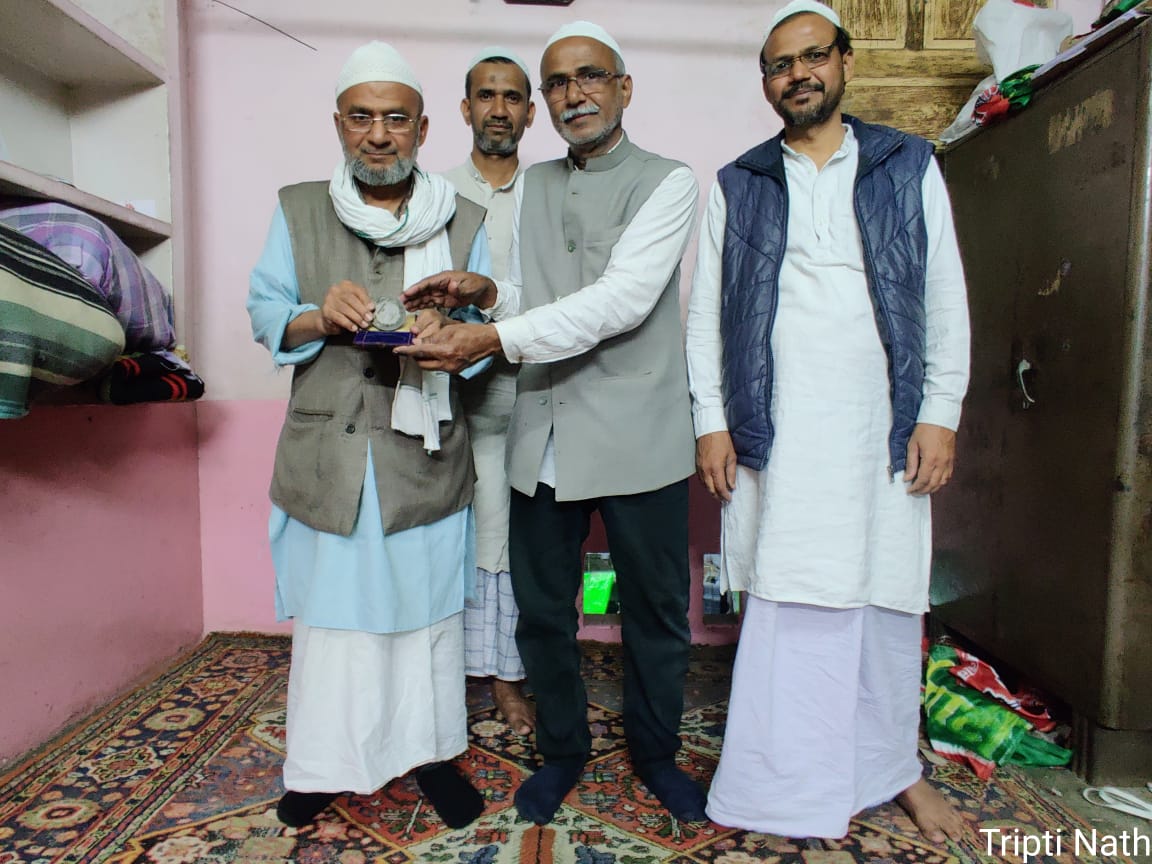
Tripti Nath/Varanasi
Mukhtarul Haq, a weaver in Rasoolpura, a congested area of Varanasi, is in an existentialist dilemma like most others in his trade. He and his six brothers live in their modest ancestral house in this Muslim-dominated area and have been following the 300-year-old family tradition of weaving.
Despite all odds, the only thing that inspires them to continue the world-famous Banarsi silk weaving is a medal given more than 100 years back to their grandfather by the British.
Located barely four kilometers from Varanasi Junction, Rasoolpura is a maze of alleys where some mosques, a madrasa, and a mazar are the only reference point to ensure that one does not get lost. Rasoolpura has 95 percent Muslim households. In both these areas, there are at least 10,000 Muslim weavers. Every second house in Bakrabad has a power loom that sounds like diesel train engines.
Walking through the narrow lanes is a unique experience as the Azan (Islamic call to prayer recited by a muezzin at prescribed times of the day) from the mosque and the deafening sound of huge power looms creates natural fusion. Some households have handlooms too.

Sadakullah's grandsons: Ghulam Munir, Mukhtarul Haq, Suleiman Akhtar Ansari (Left to right) and Javed Akhtar (standing behind)
Most weavers in Varanasi are Momin Ansari Muslims. For generations, they have passed on their skill and craft from father to son. In many households, women are also lending a helping hand to the menfolk in weaving.
Born and raised in Varanasi, Mukhtarul who completed B.Sc from Benaras Hindu University in 1986, decided to keep his family tradition alive. “ Right from childhood, I had been seeing my father, Haji Mohammad Farooq, and elder brothers, Ghulam Munir, Nazim Siddiqui, and M. Alam, weaving at home. So, I learned to weave on the handloom.’’
When I visited their family home near Jaitpura police station, at the invitation of his younger brother, Suleman Akhtar Ansari, I met their other brothers too. Mukhtarul, 56, went inside and came back with a box containing the medal awarded to his grandfather, Sadikulla.
His face lit up as he took out the medal from the box. After all, his grandfather’s name is etched on it. On the other side of the medal, ‘The United Provinces Exhibition Allahabad’ is engraved.
“This is our family virasat (inheritance). My uncle handed this to me in 1990 and I must keep it well. When we tell people that our grandfather got this medal, they are curious. Like you, they want to see it. My grandfather, Sidikulla who was an expert in KinKhabs, a certain kind of Banarsi weave, got this medal when he participated in an exhibition in Allahabad. I learned from my father that our grandfather died due to paralysis in 1955. I was told that he was bedridden for seven years. Due to his illness, he was not able to claim his remuneration from clients abroad,’’ he said.
While we sat on the carpet talking about the weaving tradition in their family in their three-storeyed house, the eldest brother Ghulam Munir also joined us. Munir who is now 70 said that the family has seen good times. Mukhtarul, brought a box containing the medal. He got nostalgic while recalling how his paternal uncle, Zahoor Ahmed gave the medal to him in 1990. “ I used to call my uncle ‘Bade Papa’. He told me that he had the medal that was given to his ‘Abbu’. He was very appreciative of my efforts to promote our family tradition. I was traveling out of Varanasi to promote our joint family business. Due to COVID restrictions in the last two years, I have not traveled out to Delhi and Kolkata but I hope to resume travel soon.’’
When his youngest brother Javed Akhtar and his teenage son, Jeeshan Akhtar looked at the medal and asked, “ How valuable is this?’, Mukhtarul emphasized that its value lies in the everlasting glory it has brought to the family. “ It seems that the weavers were prosperous then. My grandfather used to export Kin-Khab to Vietnam and other countries. We lost our father, Mohammad Farooq in 2016. He was also a weaver.’’
Nearly seven decades after his death, Sadikulla’s family, his seven grandsons, two granddaughters, and their children continue to have huge sentimental value for the medal. The moment Mukhtarul opened the box to show the medal to me, his youngest brother and his son stepped forward to take pictures. All of them took great pride in posing with the medal.
Also Read: Princess Aaliya's passion of dinosaurs changed Gujarat village
Mukhtarul does mostly Kinkhab, Jangla, and weaving on Organza pure silk. He has four daughters and one of his daughters is studying medicine.
